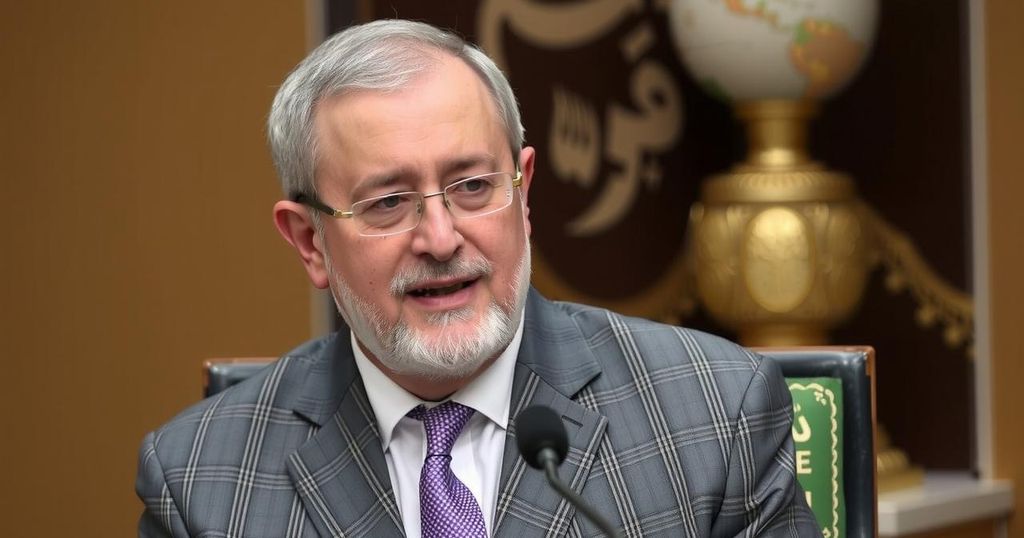Syria’s new leader, Ahmed al-Sharaa, stated elections could take up to four years to organize, with a new constitution taking three years. Sharaa, leader of the group that overthrew Assad, aims for a pragmatic governance approach while navigating complex international relationships, particularly with Russia and the United States.
Ahmed al-Sharaa, the newly established leader of Syria following the ousting of President Bashar al-Assad, stated in an interview that organizing elections could take up to four years and that drafting a new constitution may require an additional three years. He indicated that the Syrian populace would not witness significant changes for approximately one year. Sharaa’s comments emerged in a broadcast by Saudi state media, marking his first official remarks on the electoral timetable since Assad’s removal.
The offensive by al-Sharaa’s group, Hayat Tahrir al-Sham, concluded a 13-year civil war but raised concerns regarding the future governance of Syria, a nation previously under strict authoritarian rule. Sharaa emphasized the need for dialogue and hinted at the dissolution of HTS during national discussions. His statements also aimed to allay fears surrounding the potential imposition of harsh Islamic law, promising protection for minority communities.
In a broader context, the new regime is navigating complex international relations, particularly with significant players such as Russia and Turkey. Sharaa indicated strategic alignments between Syria and Russia, given Russia’s historical support of Assad’s regime and its military presence in the area. He expressed hope for improved relations with the incoming U.S. administration and the lifting of sanctions currently affecting Syria.
Overall, while Sharaa projects a desire for a more moderate and inclusive governance structure, the international community watches closely to discern whether the new leadership will steer the country towards genuine democratic reforms or revert to authoritarian practices.
The context of Ahmed al-Sharaa’s recent statements stems from the political upheaval experienced in Syria following the overthrow of long-standing president Bashar al-Assad. After a brutal and extended civil war, the leadership transition presents both challenges and opportunities for the war-torn country. The international community remains cautious regarding the future political landscape, particularly concerning the potential for Islamist governance versus democratic reforms. Additionally, Russia’s continued involvement and the geopolitical interests of neighboring countries like Turkey further complicate Syria’s path forward.
In summary, Ahmed al-Sharaa’s remarks highlight the anticipated lengthy process of establishing a new governance framework in Syria, with elections taking four years and a new constitution three years to finalize. As the nation grapples with its recent history, Sharaa’s leadership signals aspirations for a more moderate approach while balancing complex relations with global powers. The coming years will be crucial in determining whether Syria opts for democracy or reverts to authoritarianism.
Original Source: www.france24.com






